Junior Investigator Meeting - Speaker Bios
-
 Rawan Al-Kharboosh, Ph.D.
Rawan Al-Kharboosh, Ph.D.
Founder/CEO, AtPointRawan Al-Kharboosh PhD is the CEO and founder of AtPoint, a biotech company developing a fully automated hybrid hardware-software device that employs machine learning to map autologous stem cells from a person's own tissue for tailored treatments. Dr. Al-Kharboosh received her PhD in Neuroscience and an interdisciplinary fellowship in Regenerative Sciences at the Mayo Clinic and became a co-investigator of a phase 0/1 clinical trial based on her graduate work on the use of mesenchymal stem cells for the local treatment of recurrent Glioblastoma. She earned her Master's degree in Tumor Biology from Georgetown University and a Bachelors in Public Health and Biology from George Washington University. She previously served as a strategic consultant to the Saudi Food and Drug Administration (SFDA), where she helped develop the first national framework for stem cell therapies to foster scientific discoveries for novel biotechnologies in clinical care. Dr. Al-Kharboosh is a TEDx speaker and was recognized as one of the top 3 Atlantic Council Women Innovators in 2022-2023. As a space medicine enthusiast, she is passionate about the transformative potential of stem cell biotechnologies for the future of healthcare on Earth and in space and has committed to developing and advancing technologies that facilitate the autonomous biomanufacturing of stem cells for unmanned space missions in low earth orbit (LEO).
-
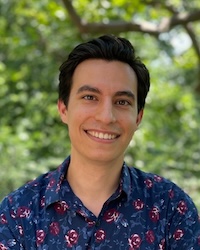 Justin Benavidez, Ph.D.
Justin Benavidez, Ph.D.
Program Officer, National Cancer Institute, Division of Cancer Biology
justin.benavidez@nih.govJustin Benavidez received his undergraduate degree in Biology at the University of Connecticut in 2013 before beginning his PhD at Columbia University in 2014. At Columbia, he studied the development of the C. elegans gonad and participated in the graduate student council and graduate recruitment efforts. He began the Presidential Management Fellowship (PMF) in 2021 after defending his dissertation and completed rotations at NCI’s Office of Communications and Public Liaison (OCPL), Office of Government and Congressional Relations (OGCR), Division of Cancer Control and Population Sciences (DCCPS), and Division of Cancer Biology (DCB). During his fellowship, he also completed an external rotation at the Health Equity Office of CDC’s Center for Surveillance, Epidemiology, and Laboratory Services (CSELS). In July 2023, Justin converted into a Program Officer position at DCB’s Tumor Metastasis Branch, where he now manages a portfolio of grants focused on prostate cancer metastasis and cancer modeling. He is the Genomic Program Administrator for DCB, and is involved in the Oncology Models Forum (OMF) program, which promotes the development of cancer models for addressing clinically relevant cancer biology questions.
-
 Nathan Boyd, Ph.D.
Nathan Boyd, Ph.D.
Health Science Administrator, Center for Biomedical Informatics & Information TechnologyDr. Boyd is a health science administrator within NCI’s Office of Data Sharing supporting data sharing training and education.
-
 Nathan Boyd, Ph.D.
Nathan Boyd, Ph.D.
Health Scientist Administrator (Program Officer), National Cancer InstituteDr. Boyd has over 10 years of laboratory experience in cell and molecular biology, immunology, and neuro-oncology. He received a B.S. in Biology and M.S. in Cell Biology and Immunology at Georgia State University. He then pursued his Ph.D. in Immunology at the University of Alabama at Birmingham (UAB) where he received numerous awards, including an NIH NRSA individual fellowship from NCI. While at UAB, Dr. Boyd contributed to significant advances in brain tumor research involving cancer stem cell and tumor microenvironments within the grade IV brain tumor glioblastoma. Dr. Boyd continued his work as a post-doctoral fellow in the department of Pharmacology at Emory University to better understand brain tumors in pursuit of effective treatment strategies. In 2020, he transitioned to a position with the U.S. Department of Defense as an American Association for the Advancement of Science (AAAS) Science and Technology Policy Fellow, focused on building and maintaining STEM education and research career opportunities that are accessible to historically excluded learners.
As a health science administrator (program officer), Dr. Boyd serves as a member of the NCI data access committee and as a genomic program administrator, he supports the implementation of the NCI Data Management and Sharing Policy, and provides program support to the Childhood Cancer Data Initiative (CCDI). Dr. Boyd develops strategies at NCI to address challenges and seize opportunities in international partnerships, education and outreach, diversity of institutional resources, and policy implementation to maximize the advancement of cancer research through data sharing and reuse. -
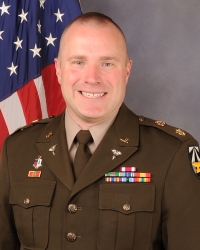 Blair C. R. Dancy, Masters in Operational Studies (MOS) and Ph.D.
Blair C. R. Dancy, Masters in Operational Studies (MOS) and Ph.D.
Associate Director, Experimental Therapeutics; Special Assistant to the Chief Science Officer, Walter Reed Army Institute of Research
blair.c.dancy.mil@health.milMajor (MAJ) Blair Dancy is the Associate Director for the Experimental Therapeutics Branch (ET), Center for Infectious Diseases Research, and serves as the Special Assistant to the Chief Science Officer at the Walter Reed Army Institute of Research (WRAIR). ET’s mission includes the discovery and development of medical countermeasures against infectious diseases and operational hazards using threat-agnostic technologies and strategies. From May – November 2023, MAJ Dancy served as the liaison officer between the U.S. Army Medical Research and Development Command and the Department of Health and Human Services, Biomedical Advanced Research and Development Authority’s Division of Research, Innovation, and Ventures.
Prior to joining the WRAIR, MAJ Dancy was selected for attendance at the U.S. Army’s Command and General Staff College, where he earned a Masters in Operational Studies and was selected for a foreign exchange program with the French École de Guerre, Paris, France. Other notable assignments include Department Chief for Biochemistry and Physiology at the U.S. Army Medical Research Institute of Chemical Defense and Chief of Chemical Threat Assessment at the 1st Area Medical Laboratory, where MAJ Dancy deployed in support of COVID-19 relief operations in the Pacific and led a team to Slovakia to support live-agent exercises with European partner nations.
MAJ Dancy received his bachelor’s degrees in 2006 from the Johns Hopkins University, in Chemistry and French, and earned his Ph.D. from the Johns Hopkins University School of Medicine in 2012 through the Biochemistry, Cellular, and Molecular Biology Program. MAJ Dancy completed a postdoctoral fellowship at the Fred Hutchinson Cancer Research Center in Seattle, Washington, prior to joining the U.S. Army in 2014. MAJ Dancy has received various military and civilian awards, holds certification in Defense Acquisition Engineering and Technical Management, and is a founding member of the Department of Defense Tri-Service Microbiome Consortium.
-
After a fairly miserable postdoc in Boston, I decided to hang up my lab coat and enter the world of science publishing with Nature. The switch allowed me to think about science and live vicariously through talented researchers without having to live in the lab or run experiments doomed to failure! I've remained in that field for 30+ years. I'm the founding editor of Nature Genetics, the first spin-off journal from Nature; former Editor-in-Chief of Cell Press and Bio-IT World magazine, and briefly the publisher of Chemical & Engineering News. Six years ago, I joined Mary Ann Liebert Inc. in New York and conceived a new launch, The CRISPR Journal. More recently, we've launched a multidisciplinary journal, GEN Biotechnology.
Along the way, I've enjoyed writng several popular science books, including 'Cracking the Genome', 'The $1,000 Genome', and most recently 'Editing Humanity: The CRISPR Revolution and the New Era of Genome Editing.' (I even narrated the audiobook.) I've also served as the technical consultant for a movie called 'Decoding Annie Parker', based on a true story of the first woman in North America tested for BRCA1. I'm currently working on a new book -- a biography of sickle cell disease.
I was educated in Oxford and London, earning degrees in biochemistry and genetics before mobing to the US. I'm based in Washington DC. -
 Jonathan Franca-Koh, Ph.D.
Jonathan Franca-Koh, Ph.D.
NCI SBIR Program Director, National Cancer Institute
jonathan.franca-koh@nih.govDr. Jonathan Franca-Koh is a Team Leader and Program Director at the National Cancer Institute's Small Business Innovation Research (SBIR) Development Center. Jonathan manages SBIR & STTR grants and contracts with a focus on cancer therapeutics and novel tools for research and drug discovery. He provides oversight throughout the award period and mentors small business applicants and awardees in developing their technology goals and commercialization strategy.
-

Dr. Aniruddha Ganguly earned his Ph.D. in Cell Biology and trained in tumor biology. He has expertise in mechanisms of tumor development and metastasis, tumor microenvironment, tumor cell-macrophage interactions, biospecimen processing and banking, cancer biomarkers, clinical assay development, cancer diagnostics, molecular analysis technologies for cancer research, informatics technology for cancer research and cancer health disparities research. Before joining the National Cancer Institute (NCI) as a Program Director in 2011, Dr. Ganguly served as an Assistant Professor at Harvard Medical School/Harvard University for many years directing and conducting cancer biology research, and teaching MD/DMD students. During that time, his laboratory discovered a new protein-protein interaction between CEA and a 115 kDa monocyte/macrophage protein that has implications in colon tumorigenesis. He was supervisor of a CLIA certified IHC Clinical Services Laboratory of the department of Pathology at Massachusetts General Hospital, Boston. His research was funded by NIH R01, Corporate and Foundation grants. At the NCI, he has responsibilities for providing guidance to the planning, development, implementation, and evaluation of assigned biomedical research programs including, molecular diagnostic technologies, extracellular RNA/exosome/extracellular vesicles in cancer diagnosis research initiative, brain tumor research, NCI’s brain tumor clinical trials, evaluation of Biomarker, Imaging and Quality of Life Studies Funding Program and core correlative science proposals. He organizes and hosts Cancer Diagnosis Program Science Session series. He has developed Program Project (P01) Development Guidance to support P01 investigators, particularly new investigators in their pre-application preparation stage. He has published many scholarly articles including book chapters, presented extensively both nationally and internationally including as keynote speakers and chaired scientific sessions in conferences, a reviewer of many scientific journals and serves on journal editorial boards. He was scientific advisor of biotechnology/biopharmaceutical companies. He has a strong emphasis in mentoring and promoting young investigators involved in cancer research.
-
 Christine Hodgdon, M.S.
Christine Hodgdon, M.S.
Co-Founder, GRASP - Guiding Researchers & Advocates to Scientific Partnerships
chodgdon513@gmail.comChristine Hodgdon was a conservation biologist before her metastatic breast cancer (MBC) diagnosis in April 2015. Her advocacy career began when she launched TheStormRiders.org, an educational resource for MBC patients that includes a searchable clinical trial database. She later co-founded GRASP - Guiding Researchers & Advocates to Scientific Partnerships which empowers patients, clinicians, and researchers to exchange ideas and learn from each other. She spearheads the MBC Alliance-sponsored Breast Cancer Brain Metastasis (BCBM) Initiative: Marina Kaplan Project with the goal to address the unmet research needs of breast cancer patients living with central nervous system (CNS) metastasis. She was also a founding committee member of MBCBrainMets.org, a resource hub for breast cancer patients living with brain metastasis. She is the Johns Hopkins Sidney Kimmel Comprehensive Cancer Center patient advocate representative for the Translational Breast Cancer Research Consortium (TBCRC) and she co-leads the Hopkins INSPIRE (Influencing Science through Patient-Informed Research & Education) Advocacy Program. Her advocacy work is inspired and driven by the loss of many friends to MBC.
-
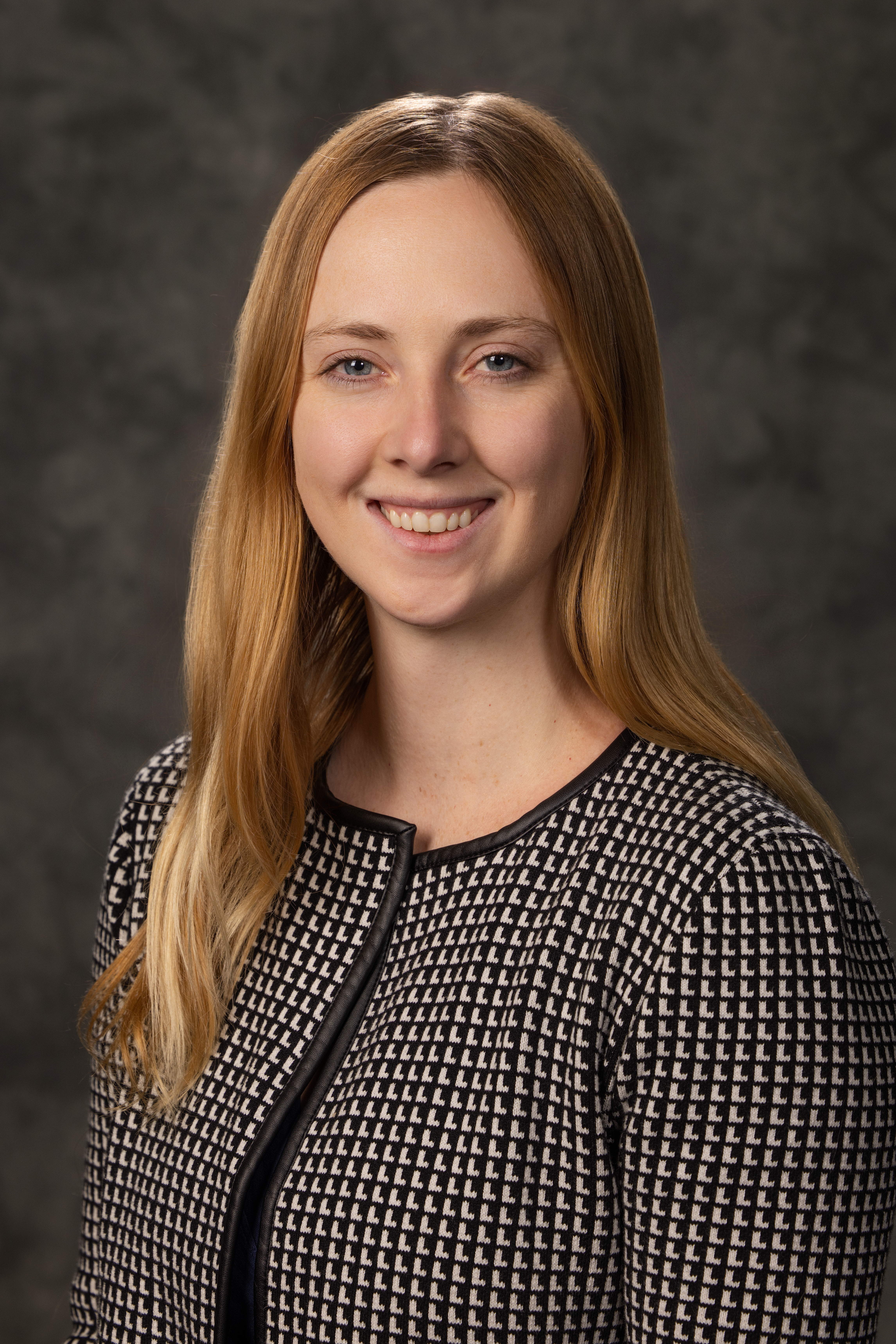
Dr. Ashley Kiemen received her bachelor’s degree in Chemical Engineering from the University of Michigan. She received a master’s degree in Philosophy from the London School of Economics, and a PhD in Chemical & Biomolecular Engineering from Johns Hopkins University. Today, she is an Assistant Professor of Pathology at the Johns Hopkins School of Medicine. Ashley’s work focuses on using deep learning and digital pathology to study the early development and invasion patterns of pancreatic cancer in three dimensions.
-
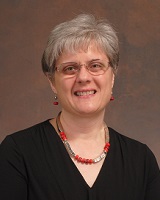 McShane Lisa, Ph.D.
McShane Lisa, Ph.D.
Associate Director, NCI Division of Cancer Treatment and DiagnosisDr. McShane is the associate director of NCI DCTD’s Biometric Research Program. She is an internationally recognized expert on precision medicine clinical trial design, the development of tumor markers and omics predictors, and reporting guidelines for health research studies.
-

Dr. Hernando Lopez-Bertoni is currently an Associate Professor in the Department of Neurology, Oncology and Sidney Kimmel Comprehensive Cancer Center at the Johns Hopkins School of Medicine. Since being appointed Assistant Professor in July 2018, he has gained a national and international reputation as a leader in the field of cancer stem cell biology and miRNA therapeutics. Dr. Lopez-Bertoni completed his PhD training at University of Nebraska Medical Center in Omaha, NE in 2012. He moved to Baltimore in 2012 to begin his postdoctoral fellowship in cancer stem cell and brain tumor biology at The Johns Hopkins School of Medicine. As a postdoctoral fellow, Dr Lopez-Bertoni maintained his high level of productivity and excellence coauthoring and his fellowship was supported by the prestigious American Brain Tumor Association Postdoctoral Fellowship Award. He oined the Neurology faculty in July 2018 as an Assistant Professor at the Johns Hopkins School of Medicine.
Dr. Lopez-Bertoni has established himself as an exceptional researcher and educator with extensive experience studying molecular and cellular phenotypes critical in cancer cell biology including DNA methylation, miRNAs, DNA damage response, tumor microenvironment and the GBM cancer stem cell phenotype. His work on in vivo miRNA delivery is serving as the foundation for sophisticated, mechanism-based, rational approaches to designing molecular cancer therapeutics for GBM. His most recent work involves understanding at the single-cell level how GBM cells transition to a therapy resistant state. He is the PI of a cross-disciplinary team of experts using state-of-the art GBM cell models, single-cell genomics, and innovative gene-delivery technology to understand how GSC-driving mechanisms contribute to the generation of tumor-propagating and therapy resistant cells in GBM with the goal of defining novel therapeutic targets for recurrent GBM. He has also demonstrated excellence in training young scientists and a strong commitment to education.
-
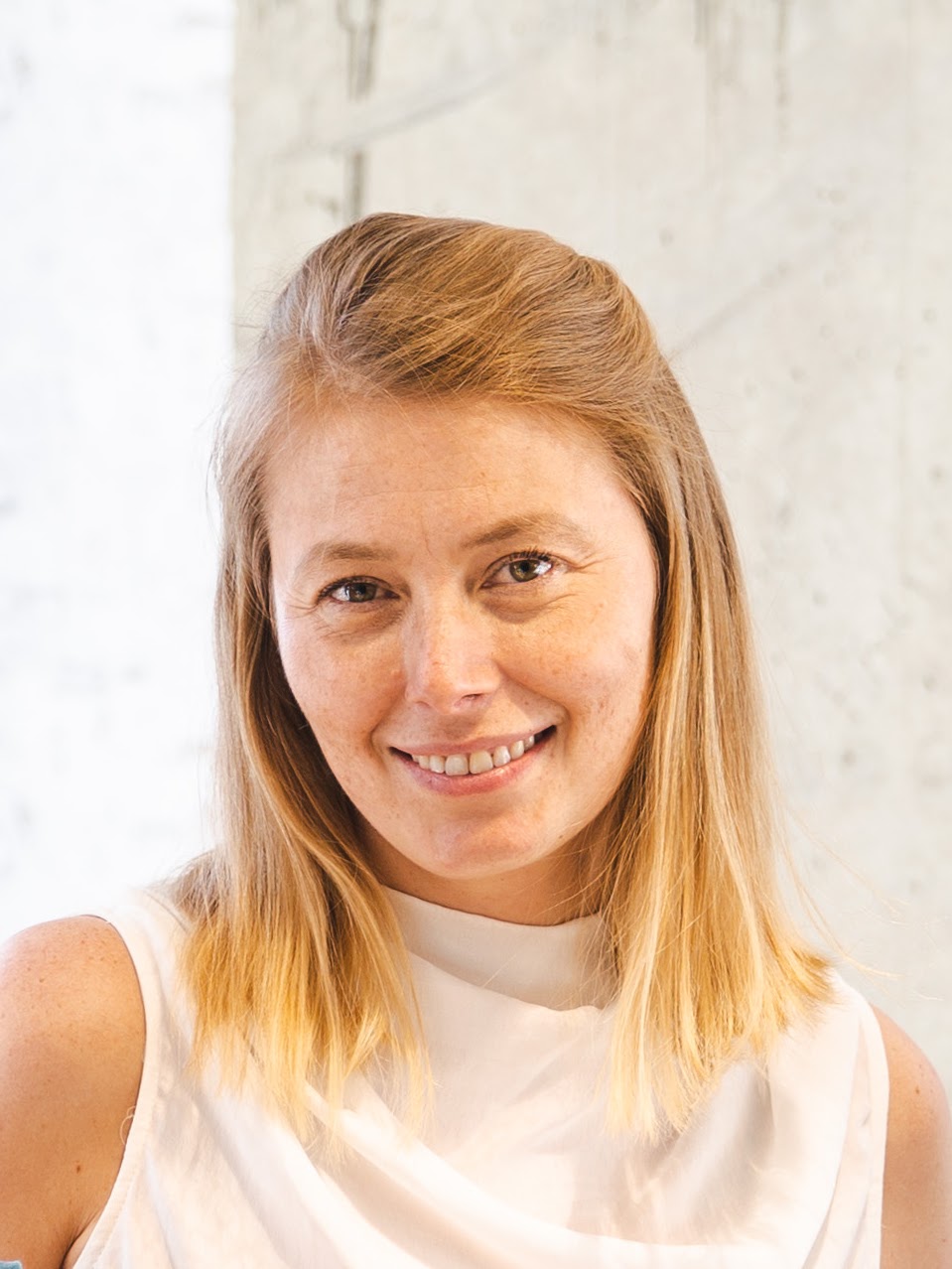
Julia Maués
Patient Advocate and Co-Founder
Guiding Researchers & Advocates to Scientific Partnerships (GRASP)
Diagnosed with breast cancer while pregnant in 2013, Julia delivered a healthy baby boy and found out shortly thereafter that the cancer had already spread to her bones, liver and brain. After many treatment setbacks, her cancer began to respond to treatment. Cancer is an important part of Julia’s life, but it doesn’t define her. Her goal is to make an impact while she is alive in the lives of others dealing with this disease. Despite facing this terrible disease, she has found meaning and purpose in working with patients and researchers.
Julia’s main focus is working with researchers, clinicians and other stakeholders to ensure research is patient-centered, innovative, accessible and inclusive. Together with Christine Hodgdon, Julia co-founded GRASP – Guiding Researchers and Advocates to Scientific Partnerships – an organization that empowers patients and researchers to exchange ideas and learn from each other. When patient advocates can inform the research process, we can drive more meaningful and fundable research that improves survival outcomes for breast cancer patients. Julia is also committed to help end disparities for patients of color, especially Black women with breast cancer. She’s a founding member of the #InclusionPledge. -
 James V. McCann, Cell Biology and Physiology, Ph.D.
James V. McCann, Cell Biology and Physiology, Ph.D.
Technical Advisor, Mintz, Levin, Cohn, Ferris, Glovsky, and Popeo
jvmccann@mintz.comJames is a Technical Advisor with more than a decade of life sciences research experience who assists clients with patent drafting and prosecution and strategic patent portfolio management. He has a broad range of capabilities spanning the areas of antibody-based therapies, cancer biology, immunology, nanoparticles, CRISPR-gene editing, personalized medicine, mass spectrometry instrumentation and data analysis, miRNAs, drug screening platform development, molecular diagnostics, 3D organoid culture systems, protein structure-function analysis, extracellular vesicles, mouse models of disease, and cellular therapies.
Prior to joining Mintz, James was a postdoctoral fellow at the Johns Hopkins University School of Medicine and a fellow in the school’s patent law training program. In his patent fellowship, he prepared patentability assessments for life sciences patents, drafted freedom to operate analyses, and performed IP due diligence and patent landscape analysis to assist in the strategic planning of portfolios. His research work included identifying a novel role for cell adhesion to regulate cell metabolism and mitochondrial function in metastatic breast cancer. He also developed an in vitro co-culture system to screen novel compounds to inhibit brain metastasis and performed pre-clinical drug screens on primary breast cancer organoids to identify potential drug treatment compounds. Earlier, as a research associate at a clinical-stage biopharmaceutical company, he developed a phage display screening platform and engineered next-generation immunotoxins to identify novel cancer therapeutics.
While earning his PhD, James identified a TGFβ-regulated miRNA linked to endothelial cell function during tumor angiogenesis and tumor growth. He also designed in vivo nanoparticle studies to test novel cancer therapies through the delivery of miRNA, molecular therapeutics, or both to specific cell types and created mouse models to audit extracellular vesicles and endothelial cells in healthy and diseased tissues. He also received a postdoctoral fellowship grant from the National Cancer Institute to focus on training for fundamental cancer research.
-
 James V. McCann, Ph.D.
James V. McCann, Ph.D.
Technical Advisor, Mintz, Levin, Cohn, Ferris, Glovsky, and Popeo
jvmccann@mintz.comJames is a Technical Advisor with more than a decade of life sciences research experience who assists clients with patent drafting and prosecution and strategic patent portfolio management. He has a broad range of capabilities spanning the areas of antibody-based therapies, cancer biology, immunology, nanoparticles, CRISPR-gene editing, personalized medicine, miRNAs, drug screening platform development, molecular diagnostics, 3D organoid culture systems, immunotoxins, protein structure-function analysis, extracellular vesicles, mouse models of disease, and cellular therapies.
Prior to joining Mintz, James was a postdoctoral fellow at the Johns Hopkins University School of Medicine and a fellow in the school’s patent law training program. In his patent fellowship, he prepared patentability assessments for life sciences patents, drafted freedom to operate analyses, and performed IP due diligence and patent landscape analysis to assist in the strategic planning of portfolios. His research work included identifying a novel role for cell adhesion to regulate cell metabolism and mitochondrial function in metastatic breast cancer. He also developed an in vitro co-culture system to screen novel compounds to inhibit brain metastasis and performed pre-clinical drug screens on primary breast cancer organoids to identify potential drug treatment compounds. Earlier, as a research associate at a clinical-stage biopharmaceutical company, he developed a phage display screening platform and engineered next-generation immunotoxins to identify novel cancer therapeutics.
While earning his PhD, James identified a TGFβ-regulated miRNA linked to endothelial cell function during tumor angiogenesis and tumor growth. He also designed in vivo nanoparticle studies to test novel cancer therapies through the delivery of miRNA, molecular therapeutics, or both to specific cell types and created mouse models to audit extracellular vesicles and endothelial cells in healthy and diseased tissues. He also received a postdoctoral fellowship grant from the National Cancer Institute to focus on training for fundamental cancer research.
-
 Claire E. McCarthy, Ph.D.
Claire E. McCarthy, Ph.D.
Communications Manager, NCI Division of Cancer Biology
claire.mccarthy@nih.govDr. Claire McCarthy develops and implements communications related to fundamental cancer research for the NCI Division of Cancer Biology. She leads the DCB communications team, which publishes digital media content about cancer biology, interviews researchers about their careers and scientific studies, manages DCB social media accounts and newsletters, promotes DCB events, and works collaboratively with scientists and communications staff. Prior to becoming the DCB Communications Manager, Dr. McCarthy received a Ph.D. in Toxicology from the University of Rochester School of Medicine and Dentistry. Her thesis research focused on investigating the toxicological effects of biomass smoke exposure in the lung. After graduate school, she trained in science communication through the NCI Health Communications Internship Program (now called the NCI Science Communications Fellowship).
-
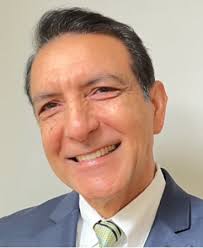 Daoud Meerzaman, Ph.D.
Daoud Meerzaman, Ph.D.
Branch Chief, NCI Center for Biomedical Informatics and Information TechnologyDr. Meerzaman is the branch chief for the Computational Genomics and Bioinformatics Branch at NCI CBIIT. He leads a team of bioinformaticists, computational biologists, and developers to analyze cancer research data for NCI.
-
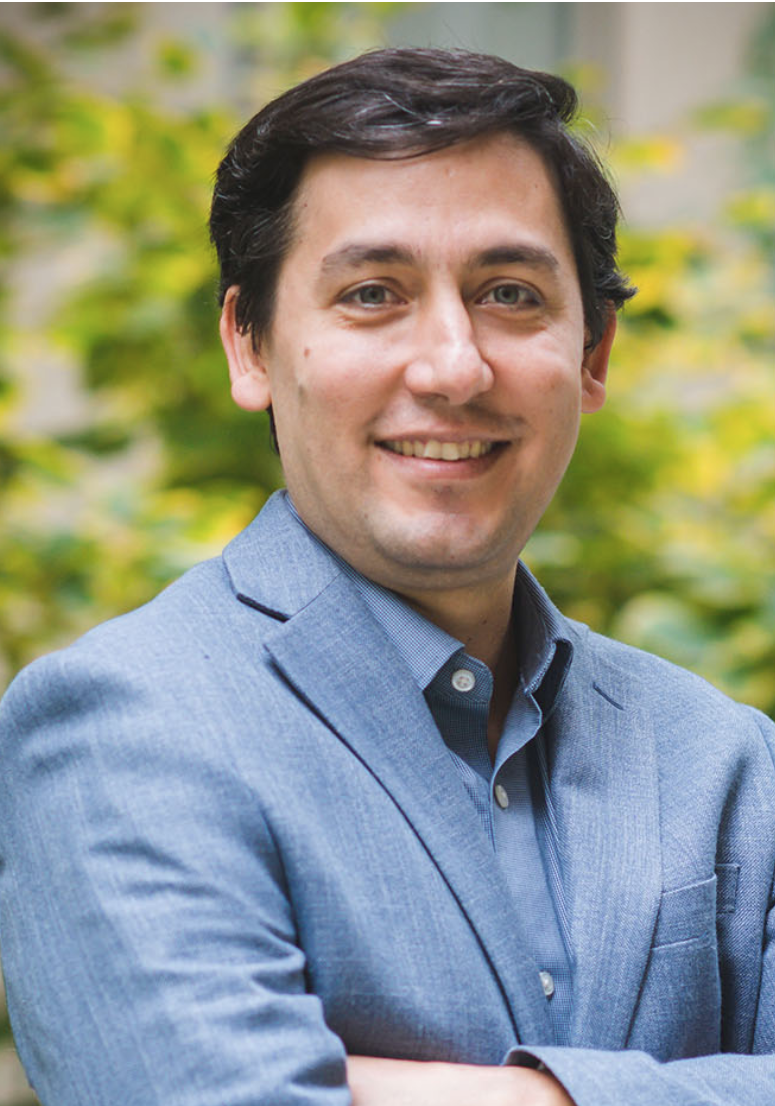
Hadi T. Nia is an Assistant Professor of Biomedical Engineering at Boston University. He received his B.Sc. from Sharif University of Technology and did his doctoral training at Massachusetts Institute of Technology (MIT) under the supervision of Drs. Alan Grodzinsky and Christine Ortiz. He then moved to Massachusetts General Hospital, Harvard Medical School for his post-doctoral training under the mentorship of Dr. Rakesh Jain where he studied the tumor microenvironment with a focus on the physical hallmarks of cancer. Hadi’s current research include developing novel models and tools for imaging the lung in real-time and at the cellular resolution to probe the links between the lung physics, biology, and immunity in health and disease. Hadi has received multiple awards for his research including NIH Director’s New Innovator (DP2), Sloan Research Fellowship, NSF CAREER, Beckman Young Investigator, DoD Idea Award, and NIBIB Trailblazer awards.
-
FREDDIE L. PRUITT, Ph.D.
Senior Advisor, Federal Data Processes , Office of Data Sharing
freddie.pruitt@nih.govThrough my work with NCI’s Office of Data Sharing, I advise on and coordinate efforts concerning policies, technology, and operations that streamline NCI’s data access process. I also chair NCI’s data access committee, facilitating review for controlled-access data, and as a genomic program administrator.
-
 Kaitlyn Sadtler, Ph.D.
Kaitlyn Sadtler, Ph.D.
Tenure-Track Investigator, National Institute for Biomedical Imaging and Bioengineering, National Institutes of Health
kaitlyn.sadtler@nih.govDr. Kaitlyn Sadtler is a scientist and Chief of the Section on Immuno-Engineering at the National Institutes of Health. She began her lab at the National Institute of Biomedical Imaging and Bioengineering after a postdoctoral fellowship at the Massachusetts Institute of Technology in the Department of Chemical Engineering working on the molecular mechanisms of immune activation in the foreign body response. She completed her Ph.D. at the Johns Hopkins University School of Medicine where she showed a role for immune cells in biomaterial-mediated muscle regeneration. She has led research that has been published in journals such as Science, Nature Communications, Nature Materials, and Science Translational Medicine. She was recognized as a TED Fellow and delivered a TED talk that was listed as one of the top-viewed talks of 2018. Dr. Sadtler was selected for the Forbes 30 Under 30 List in Science, the MIT Technology Review 35 Innovators Under 35, the World Economic Forum Young Global Leaders, and the National Academies of Science Engineering and Medicine New Voices Program. She also received the 2021 Outstanding Recent Graduate Award from Johns Hopkins University and an honorary doctorate from her undergraduate university, UMBC. At NIH, Dr. Sadtler has lent her lab’s expertise to the fight against COVID-19, leading a study that detected 16.8 million undiagnosed SARS-CoV-2 infections in the US after the first pandemic wave in the US. She continues her work on immunoengineering in the context of traumatic injury focusing on the balance of tolerance and autoimmunity during tissue reconstruction, recently implicating a new immune cell type in self-tolerance after volumetric muscle loss.
-
 Krish Seshadri, M.S.
Krish Seshadri, M.S.
Senior Cloud Architect, NCI Center for Biomedical Informatics and Information TechnologyMr. Seshadri is a senior cloud architect and computer scientist within NCI CBIIT’s Digital Services and Solutions Branch. He provides the technical direction for several of NCI’s cloud platforms.
-

Adam Taylor is the Director of Cancer Biology at Sage Bionetworks. His role involves leading a fantastic team of data managers, scientists, engineers, and community experts. Together, they work closely with research communities like HTAN, MC², and AACR GENIE to help them make the most of their data and build collaborations that drive cancer research forward.
Adam holds a PhD in Pharmacy from the University of Nottingham and an MEng in Biochemical Engineering from the University of Bath. He completed his postdoc at the University of Washington before joining the National Physical Laboratory as a staff scientist. With a diverse scientific background spanning tissue engineering, mass spectrometry imaging, and cancer metabolism, Adam has been with Sage Bionetworks for three years and currently serves as a Principal Investigator for the HTAN Data Coordinating Center.
He is particularly interested in spatial biology approaches and is excited to co-lead a workshop on the MCMICRO multiplexed tissue imaging pipeline at the NCI Junior Investigator Meeting. dam looks forward to engaging with participants about making research data more open and fostering radical collaboration in cancer research. -
 Ismail Baris Turkbey, M.D.
Ismail Baris Turkbey, M.D.
Senior Clinician, NCI Center for Cancer ResearchDr. Turkbey is a senior clinician at NCI’s Molecular Imaging Branch and the director of NCI’s Artificial Intelligence Resource in CCR. His research focuses on artificial intelligence and imaging, biopsy techniques, and focal therapy for prostate cancer.
-
 Clarence Yapp, PhD
Clarence Yapp, PhD
Director of Microscopy and Computer Vision, Harvard Medical SchoolClarence Yapp (DPhil) is the Director of Microscopy and Computer Vision at the Laboratory of Systems Pharmacology at Harvard Medical School. His background is in developing microscopy-based tools for studying diseases. Since 2007, he has been designing experiments over a wide variety of imaging methods including whole slide imaging, high-content microscopy, 3D confocal and two-photon imaging. His primary interests are developing state-of-the-art methods to enable users to correctly acquire and analyze their image data. After his PhD, he developed an interest in applying microscopy and image analysis for high content screening of chemical probes against novel epigenetic targets during his postdoctoral studies at the Target Discovery Institute, Oxford, UK. During this time, he was invited to manage the microscopy facility at the Botnar Research Center in Oxford, UK. He extended his career to Harvard Medical School (HMS) in 2016 and continues to ensure that users receive adequate guidance on the acquisition and analysis of their data at the Laboratory of Systems Pharmacology (LSP) and, previously, as a research associate at the Image and Data Analysis Core (IDAC) to serve the entire network of HMS and the nearby 3 research hospitals. He is one of the co-developers of the widely successful opensource image analysis pipeline called MCMICRO. Over the past 3 years, he was co-chair of the HTAN (Human Tumor Atlas Network) Imaging subworking and Molecular Characterization Working Groups – a National Cancer Institute initiative as well as the Image Analysis Special Interest Working Group at the Cancer Systems Biology Consortium (CSBC). Here, he co-organized various workshops/hackathons and initiatives that assessed quality of different image modalities, visualized highly multiplexed datasets, and curated metadata from microscopy datasets. Currently, he is most known for leading the imaging effort in generating 3D highly multiplexed imaging via cyclic immunofluorescence on clinical samples.
